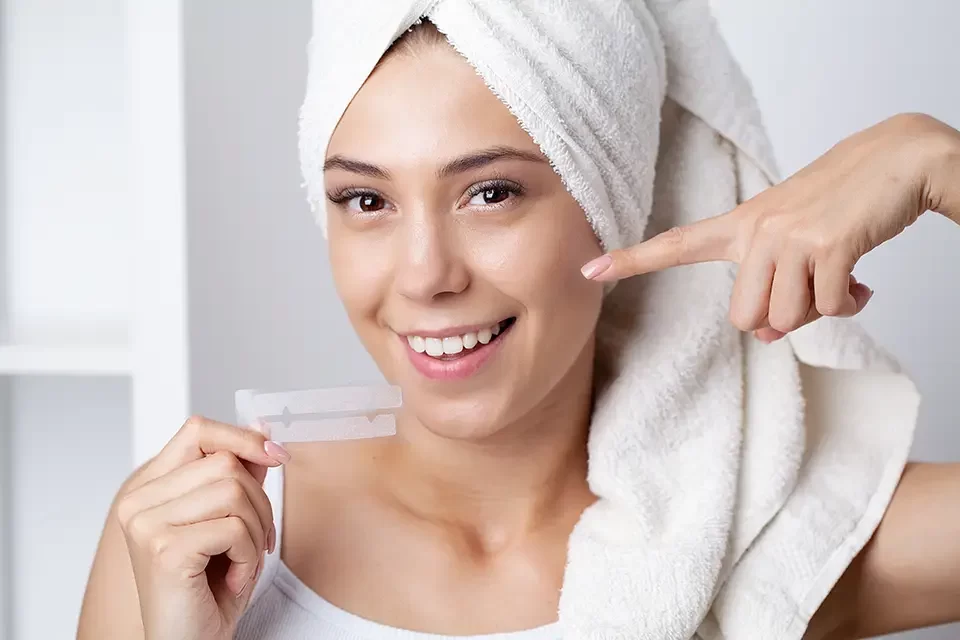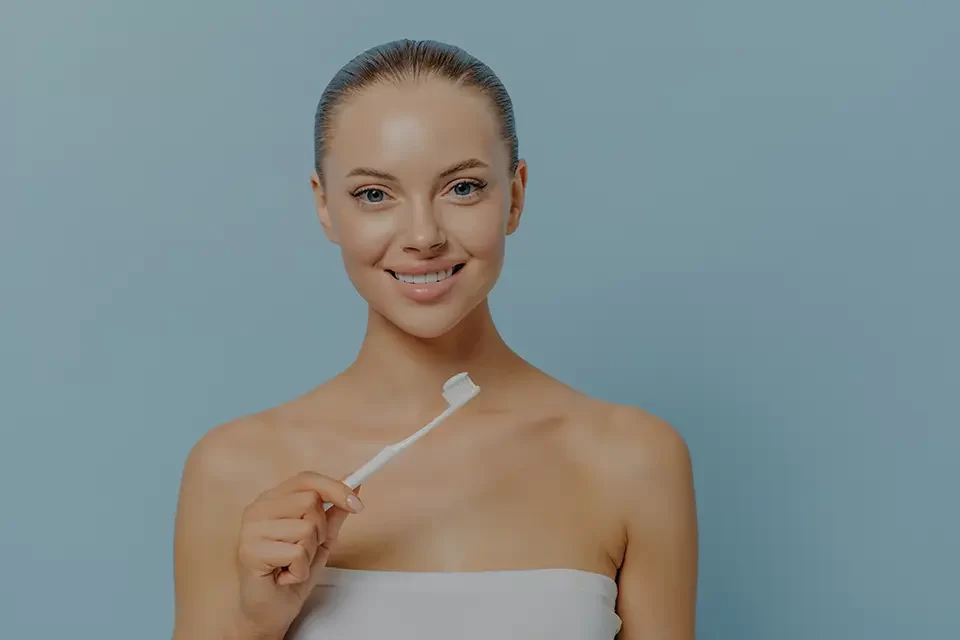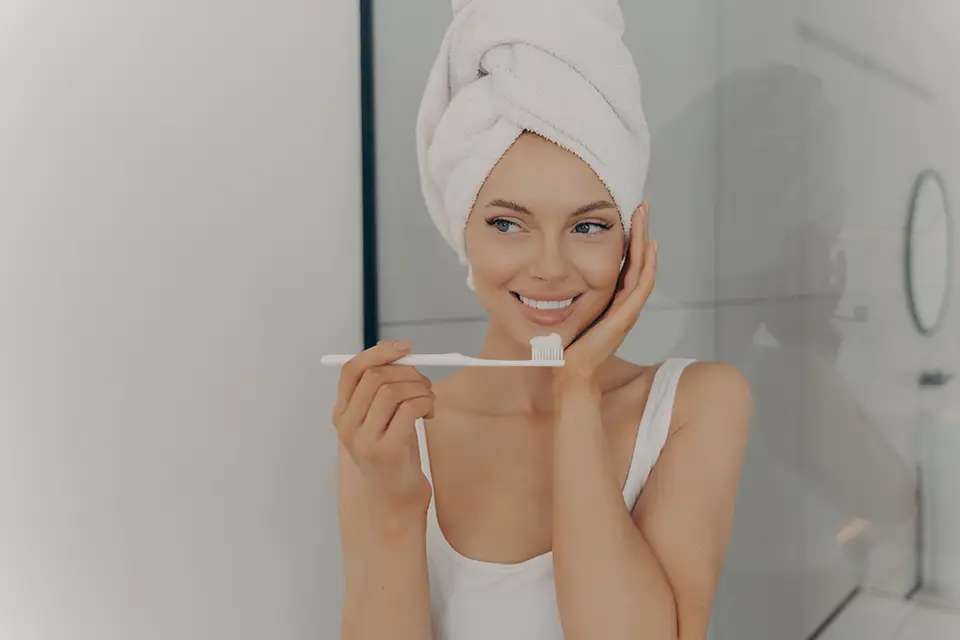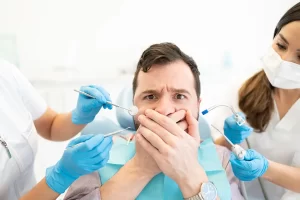A bright, radiant smile is something many of us desire. It can boost our confidence and light up our entire face. With the rise of social media and wellness trends, the interest in finding natural and effective ways for how to whiten teeth at home has grown significantly. Many people in Sidcup and beyond are curious about what they can do themselves before considering professional treatments.
At FIFTH ST Dental in Etobicoke, Ontario, we believe in providing our patients with clear, honest, and safe information. While there are many claims online about “miracle” whitening solutions, it’s important to approach them with a healthy dose of realism. This guide will explore some of the popular methods, discuss what actually works, and explain the limitations and risks of trying to whiten your teeth at home.
Understanding Why Teeth Become Stained
Before we dive into the methods for how to whiten teeth at home, it’s helpful to understand why teeth become discoloured in the first place. There are two main types of staining:
- Extrinsic Stains: These are the surface stains that build up on your tooth enamel. They are the most common cause of yellowing and are typically caused by things like coffee, tea, red wine, smoking, and colourful foods.
- Intrinsic Stains: This type of discoloration comes from within the tooth. It can be caused by certain medications, trauma to the tooth, or simply the natural aging process, as the enamel on our teeth thins over time, revealing the yellowish dentin layer underneath.
It’s important to know that most at-home methods are only capable of addressing the superficial, extrinsic stains.
How to Whiten Teeth at Home: What Works and What Doesn't
When you search for how to whiten teeth at home, you’ll find a long list of popular DIY remedies. Let’s break down some of the most common ones and look at them from a professional dental perspective.

Baking Soda, Oil Pulling, and Charcoal: Are DIY Teeth Whitening Remedies Safe?
- Baking Soda: Brushing with a paste made of baking soda and water is an old remedy. Baking soda is mildly abrasive, which means it can help to scrub away some surface stains. While it might provide a slight brightening effect, it doesn’t actually change the intrinsic colour of your teeth. Be very gentle if you try this, as its abrasiveness can potentially wear down your enamel over time.
- Oil Pulling: This ancient practice involves swishing oil (like coconut or sesame oil) in your mouth for 15-20 minutes. Proponents claim it “pulls” toxins and bacteria from the mouth, leading to whiter teeth. While it’s not harmful and can be a good way to clean your mouth, there is no scientific evidence to support the claim that it can chemically whiten your teeth.
- Activated Charcoal: Charcoal toothpastes and powders have become incredibly popular. Like baking soda, charcoal is abrasive and can help to lift some surface stains. However, the Canadian Dental Association has cautioned against its long-term use due to its high abrasiveness, which can permanently damage your tooth enamel. For this reason, it is not a recommended method for how to whiten teeth at home.
- Fruits like Strawberries and Pineapple: Some people believe that the acids in certain fruits can whiten teeth. While fruits are a healthy part of your diet, there is no clinical evidence that rubbing them on your teeth will produce a noticeable whitening effect. Furthermore, the acid can be damaging to your enamel if left on the teeth for extended periods.
More: Choosing Your Family Dentist in Etobicoke: The Complete Guide
Dentist-Recommended Solutions for How to Whiten Teeth at Home
So, if many of the popular DIY methods are ineffective or potentially risky, what is the best approach? The most reliable way for how to whiten teeth at home is to use products that have been specifically designed and tested for this purpose, or better yet, a system provided by your dentist.
- Whitening Toothpastes: Look for toothpastes that contain a gentle polishing agent or a small, safe amount of a chemical whitening agent like hydrogen peroxide. These can be effective at managing surface stains and preventing new ones from forming.
- Professional Take-Home Whitening Kits: This is, by far, the superior choice. At FIFTH ST Dental, we can provide you with a custom-made whitening tray that fits your teeth perfectly. We also give you a professional-grade, regulated whitening gel. This method is safe, highly effective, and allows you to achieve professional results in the comfort of your own home. This dentist-supervised approach is the gold standard for how to whiten teeth at home.
Preventing Tooth Stains: The Key to a Lasting White Smile

No matter which method you choose, the most important part of keeping your teeth bright is prevention. You can significantly reduce staining by:
- Limiting your consumption of coffee, tea, and red wine.
- Rinsing your mouth with water after consuming staining foods or drinks.
- Avoiding all tobacco products.
- Maintaining excellent oral hygiene with regular brushing, flossing, and dental check-ups.
Conclusion: The Truth About How to Whiten Teeth at Home
While the idea of finding a quick, natural trick for how to whiten teeth at home is appealing, the reality is that most DIY remedies are either ineffective or carry risks. The safest and most reliable way to achieve a brighter smile is through proven methods like a good whitening toothpaste or a professional take-home kit from your dentist.
At FIFTH ST Dental in Etobicoke, Ontario, your oral health is our top priority. Before you try any whitening method, we strongly recommend coming in for a consultation. We can ensure your teeth and gums are healthy enough for whitening and guide you toward the best and safest option for your unique smile.
Ready to achieve a brighter, more confident smile safely? Contact FIFTH ST Dental today to schedule your appointment and learn about how to whiten teeth at home.
Frequently Asked Questions (FAQs) About How to Whiten Teeth at Home
1. Is it safe to whiten your teeth at home?
It can be, if you use the right products. Over-the-counter whitening toothpastes are generally safe. The safest and most effective option is a professional take-home kit from your dentist, as the trays are custom-fitted and the gel is a regulated, professional-grade formula.
2. Can whitening damage my teeth?
Using highly abrasive materials like charcoal or brushing too hard with baking soda can damage your tooth enamel. Professional whitening, whether done in-clinic or with a take-home kit from your dentist, is very safe and will not harm your teeth.
3. Why doesn't my teeth whitening last?
The longevity of your results depends entirely on your lifestyle habits. If you regularly consume staining foods and drinks like coffee or red wine, the results will fade more quickly. Regular touch-ups are often needed.
4. Can I whiten crowns or veneers at home?
No. Dental restorations like crowns, bridges, and veneers are made of porcelain or composite materials that do not respond to whitening agents. They will not change colour.





